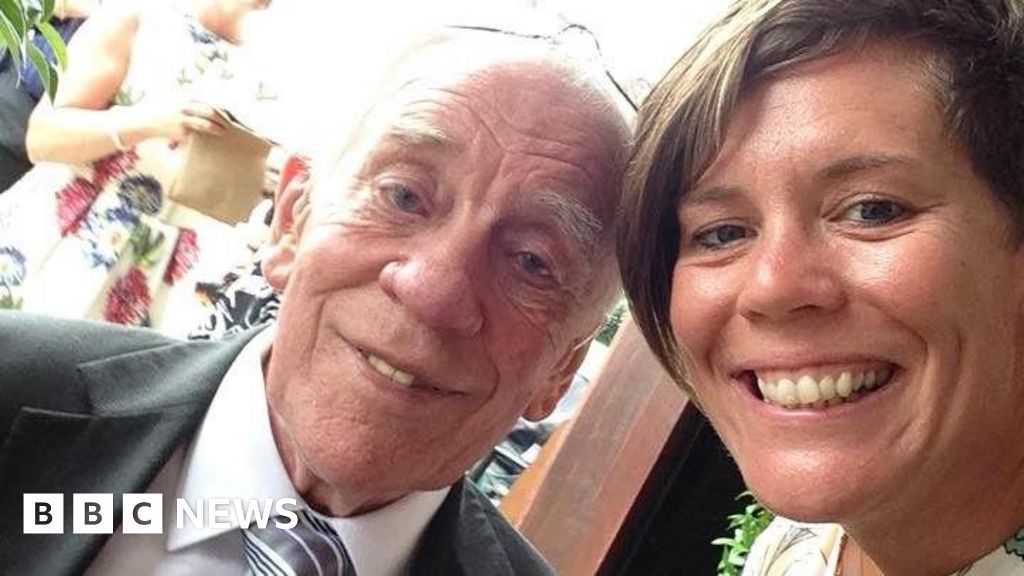
 Shuker family
Shuker familyThe daughter of a late football legend has backed a new rule phasing out deliberate headers in grassroots youth football.
The Football Association’s new rules will cover all leagues, clubs and any affiliated school matches, and will phase heading out for all games at under-11 level and below over the next three seasons.
The family of former Oxford United captain John Shuker, who died with vascular dementia and Alzheimer’s in 2019, believe his illnesses were linked to his time in the sport.
His daughter Hannah Shuker said all young players should know “the chance that they’re taking” if they head the ball.
“It’s been proven… that heading the ball has had a significant impact on the older generation that played football, definitely in the period of my dad from 1962 onwards,” she said.
 Getty Images
Getty ImagesShe said her mum remembered times her dad was knocked unconscious, and, while the balls are lighter now, the velocity “needs more scientific research”.
“They’re a lot quicker, they’re a lot harder,” she said.
‘Microdamage’
Nathan Howarth from the Concussion Legacy Foundation said young people’s brains are still developing and were “really susceptive to head impact exposure and the microdamage”, so the ban for under-11s was “a really good start”.
But he said that professional footballers are at “a greater risk” of neurodegenerative diseases including dementia, so the ban should be extended.
“[The brain] is such a vitally important organ for all that we are and all that we do,” he said.
“We do need to think about maybe in the future bringing [the ban] even higher, because we just don’t know at this stage what impact this will have on people’s brains.”
